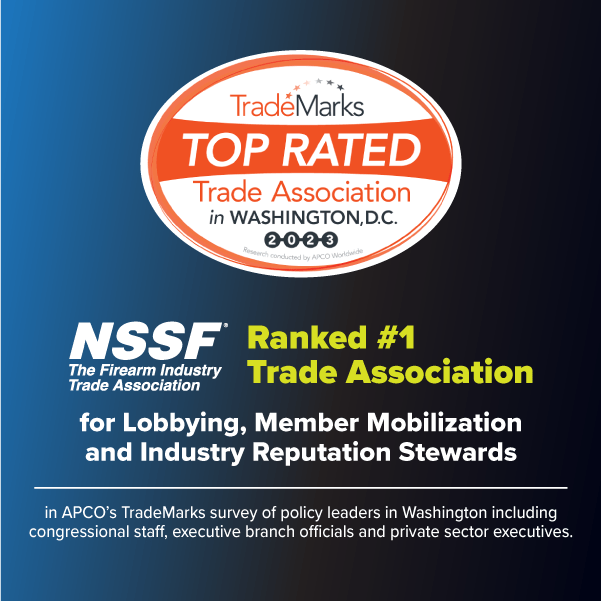 Back to News
Back to News
January 13, 2021
Hearing Protection Act Deserves Resounding Congressional Support
Prospects for any sort of pro-gun bill moving in Congress are dim, but that doesn’t mean Congress shouldn’t try, especially when it’s a bill to make recreational shooting and hunting safer and make gun ranges better neighbors. That’s why NSSF is urging Congress to consider the Hearing Protection Act, H.R. 95.
It’s an uphill struggle for the HPA as Hollywood and detractors propel a misunderstanding of suppressors. An examination of the facts is helpful as suppressors are already used and increase safety when using a firearm.
Senate Disinformation
U.S. Sens. Kirsten Gillibrand (D-N.Y.) and Bob Menendez (D-N.J.) have already erected roadblocks on streamlining suppressor regulations. Both severely miss the mark when discussing the hardware though. Sen. Gillibrand, staunchly antigun, tweeted in opposition to the 2017 version of the HPA, saying gunfire with suppressors “is quiet,” making it hard for the witnesses of crimes to hear criminal activity. Sen. Menendez went further, introducing legislation in 2019 to ban the sale, import, manufacture or transfer of suppressors. Sen. Menedez said of his bill, “The sound of gunshots is what tells you that your life is danger, and that it’s time to run, hide, take cover, call the police and help others save themselves.”
Both couldn’t be more mistaken.
Suppressor Facts
Detractors vilify “silencers” for fear of what they’ve seen in fiction movies. They believe they’re completely quiet, magically making gunfire a quiet “pffft.” These are Hollywood myths.
Suppressors are attached to the end of a firearm barrel and use a series of baffles to redirect the expanding gases from the barrel, reducing noise. Think of a car’s muffler. Hardly silent, suppressors reduce the noise from a firearm report down to about 130 decibels – around the same noise level as a motorcycle, chain saw or jack hammer. That decrease in noise dramatically makes it safer while hunting and during recreational shooting, protecting the shooter’s hearing as well as any surrounding or nearby participants too.
Suppressors are already common – and growing. In fact by current estimates there are over 1.5 million already registered in the United States and they’re legal to own and use in 42 states, including 40 states that allow them for hunting.
It’s just the process to purchase the accessory is cumbersome and lengthy. Suppressors are still listed on the 1934 National Firearms Act (NFA) along with machine guns, requiring an extra $200 tax stamp and extensive registration paperwork, submission of photos and fingerprints, chief law enforcement officer notification and duplicative background checks. When things are moving smoothly, it’s about a nine-month process to finally take possession of a suppressor. Congressman Duncan’s Hearing Protection Act would delist suppressors from the NFA and allow them to be purchased and transferred the same way a firearm is purchased at retail. They would be regulated with the same markings (including serial number), record keeping and FBI National Instant Criminal Background Check System (NICS) check that is required for a retail firearm purchase.
Congressional Prospects
Admittedly, prospects for any pro-gun legislation moving in this Congress or being signed by President-elect Joe Biden is dim at best. However, this is common-sense gun safety. This is a measure that will make for better neighbors for those living near gun ranges. European countries with very strict gun control laws actually require suppressors to be used for these very reasons. In some of those countries, they’re available for open purchase at hardware stores.
It’s time to hear the facts. Suppressors reduce noise, reduce recoil and make recreational shooting and hunting safer.
You may also be interested in:
https://www.nssf.org/nssf-commends-rep-jeff-duncans-introduction-of-the-hearing-protection-act/
Categories: BP Item, Featured, Government Relations, Top Stories









